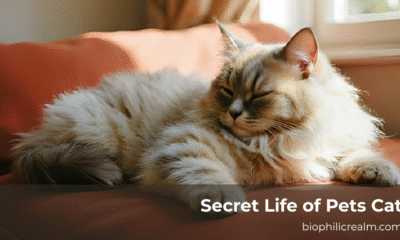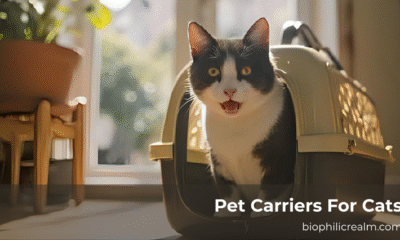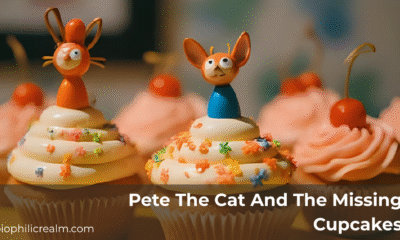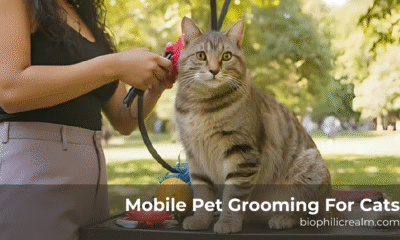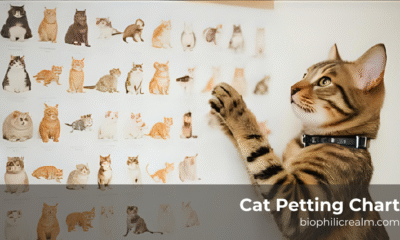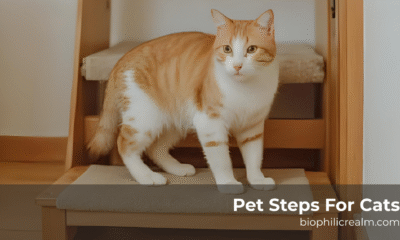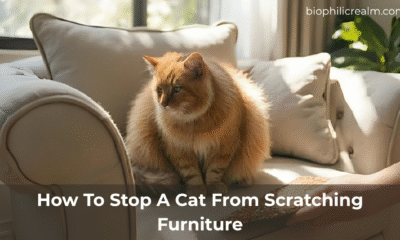Animals
The Life Cycle of Seahorses Explained
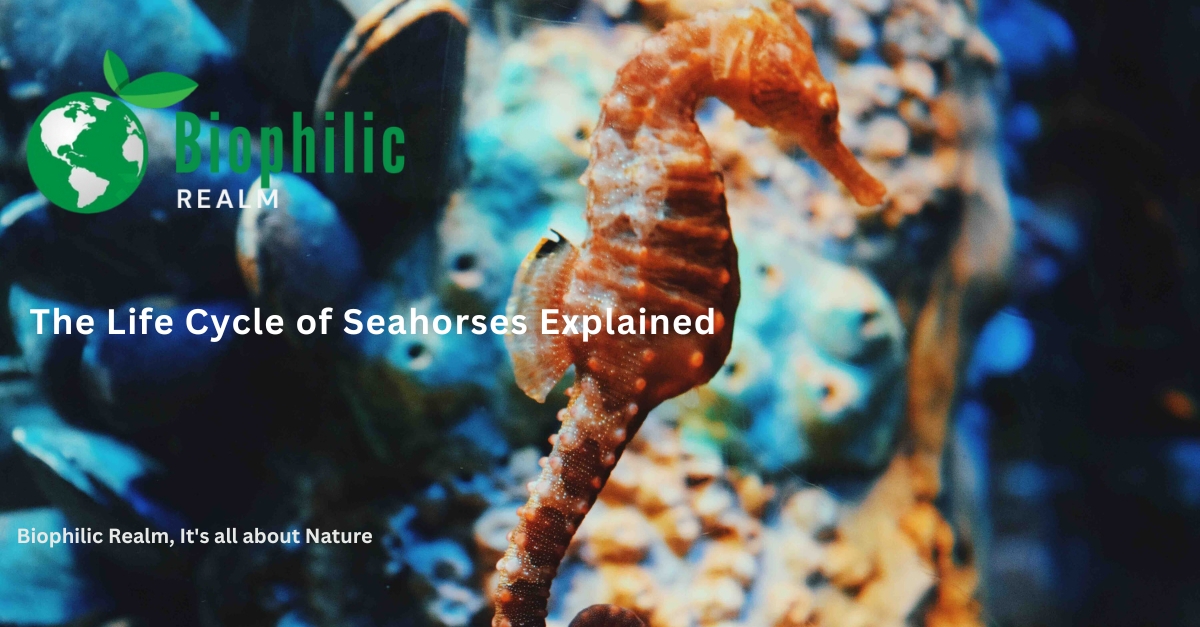
[ad_1]
In this article, we will explore the fascinating life cycle of seahorses. We will discuss the reproduction, growth, and development stages of these unique creatures. From courtship rituals to the birth of their offspring, we will delve into the world of seahorses and learn about the amazing journey they go through during their life cycle.
How do seahorses reproduce?
Seahorses have a unique courtship ritual that begins with the male seahorse performing a mating dance to attract the female. Once the female selects a mate, she transfers her eggs to a special pouch on the male’s abdomen. The male fertilizes the eggs internally and carries them in his pouch until they are ready to hatch. This process can take several weeks, depending on the species of seahorse.
After the gestation period, the male gives birth to live baby seahorses, called fry. This method of reproduction is unique to seahorses and is one of the reasons why they are so intriguing to researchers and marine enthusiasts.
What are the growth stages of seahorses?
Once the baby seahorses are born, they are fully formed and independent. They immediately begin searching for food and can consume small crustaceans and plankton. As they grow, they go through several stages of development, shedding their exoskeleton multiple times in a process known as molting.
Seahorses continue to grow throughout their lives, reaching full maturity in about one year. They are relatively slow growers compared to other fish species, and their unique body shape and features make them instantly recognizable in their marine habitats.
How do seahorses develop from birth to adulthood?
Seahorses experience remarkable growth and development from birth to adulthood. As they mature, their body proportions change, and they develop their iconic curved tails and long snouts. They use their prehensile tails to anchor themselves to the seafloor and other objects, allowing them to maneuver through the water with ease.
During this development stage, seahorses also establish territories and mating rituals, contributing to the continuation of their species. They are highly specialized creatures with unique adaptations that enable them to thrive in their marine environments.
What are the main threats to the life cycle of seahorses?
Seahorses face various threats to their life cycle, including habitat destruction, pollution, and overfishing. Their dependence on specific habitats, such as seagrass beds and coral reefs, means that any damage to these ecosystems can have a significant impact on their population. Illegal trade in seahorses for traditional medicine and the aquarium trade also poses a threat to their survival.
Conservation efforts are crucial to protecting the life cycle of seahorses and ensuring that these fascinating creatures continue to thrive in their natural habitats. By raising awareness and implementing sustainable practices, we can help safeguard the future of seahorses and the marine environments they rely on.
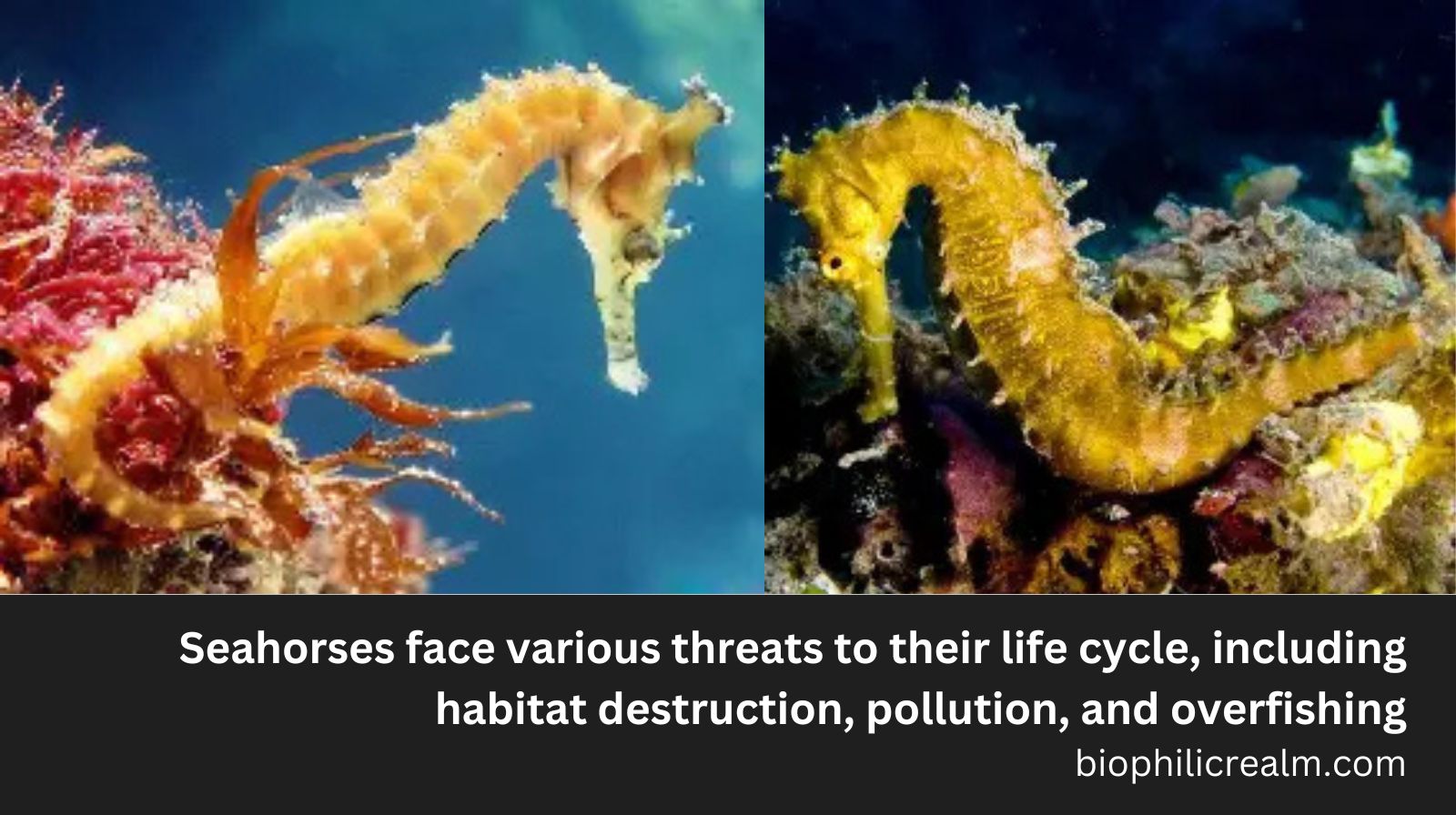
Conclusion
The life cycle of seahorses is a complex and awe-inspiring journey that encompasses reproduction, growth, and development. From their unique mating rituals to the birth of their offspring, seahorses exhibit remarkable adaptations and behaviors that set them apart from other marine species. By understanding and appreciating the life cycle of seahorses, we can work towards protecting and preserving these captivating creatures for future generations to enjoy.
FAQs
1. Do seahorses go through a metamorphosis?
No, seahorses do not go through a metamorphosis like some other marine species. They are born fully formed and independent, and their growth and development occur through molting and gradual maturation.
2. How long do seahorses live?
Seahorses typically have a lifespan of one to five years, depending on their species and environmental conditions. Factors such as habitat quality, predation, and human impacts can influence their longevity.
3. Are seahorses endangered?
Several species of seahorses are threatened by human activities, including overfishing, habitat destruction, and illegal trade. Conservation efforts are underway to protect seahorses and their habitats from further decline.
4. What do seahorses eat?
Seahorses feed on small crustaceans, plankton, and other tiny organisms that they capture using their long snouts and specialized jaws. They are carnivorous and rely on a steady supply of food to sustain their energy needs.
5. Can seahorses change color?
Yes, seahorses have the ability to change color to blend in with their surroundings and communicate with other seahorses. They can adjust their skin pigmentation to match the environment, making them excellent camouflagers in their marine habitats.
[ad_2]

Animals
Meet Chloe, The Awesome Secret Life Of Pets Cat
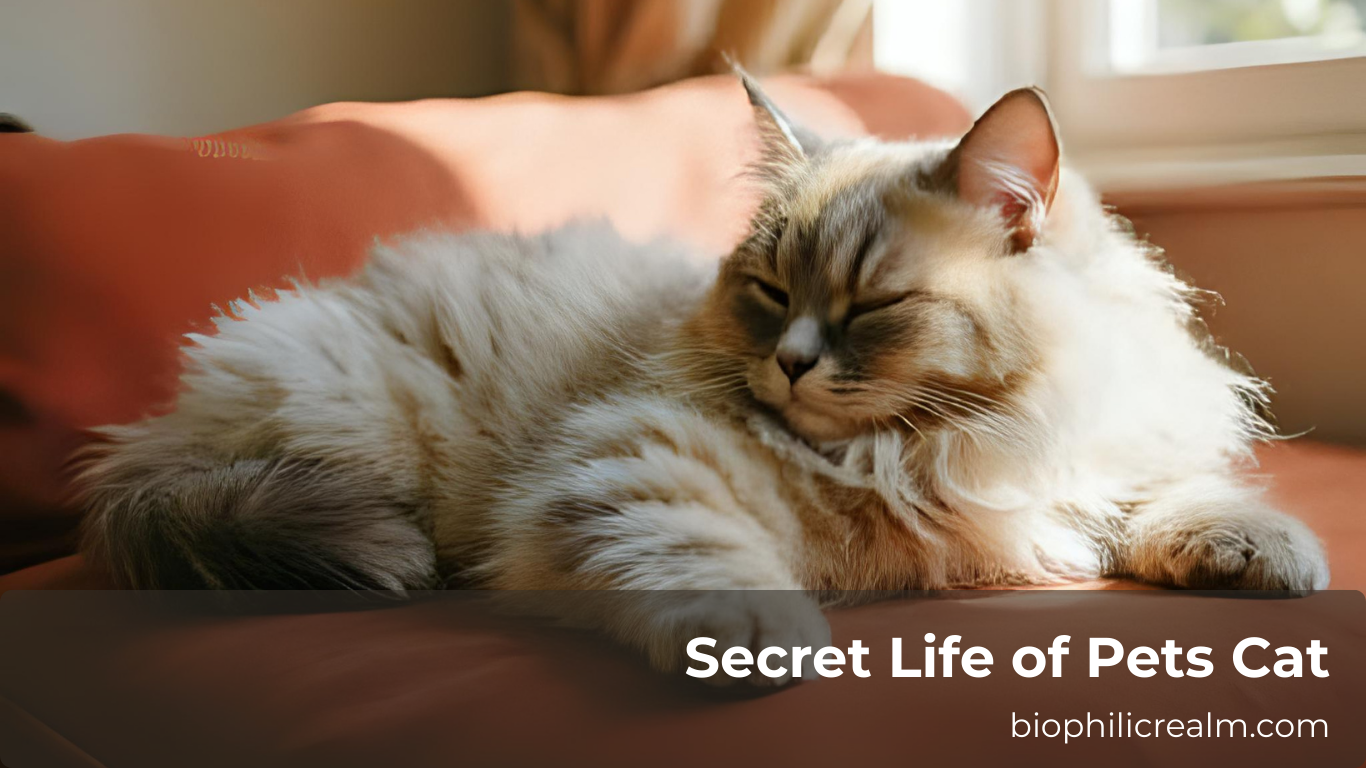
Have you ever wondered what your pets do when you are not home? You can tap into an imaginative world and see how their lives rock in The Secret Life of Pets, the first movie (2016) and its sequel (2019). Both films have a colorful cast of cats. But one character steals the show with her sassy attitude and relatable quirks. Meet Chloe, the Secret Life of Pets cat. This gray tabby, voiced by the talented Lake Bell, is the purr-fect mix of sarcasm, clumsiness, and loyalty. Let’s explore why Chloe is so awesome, her role in the films, and more in this article.

Chloe, the sassy tabby Secret Life of Pets cat
Chloe, the Secret Life of Pets Chloe, is a chubby gray tabby cat. She has a white belly and muzzle, pink ears and nose, and green eyes. Anyone can easily recognize her because of her stripes and big size. But do you know what makes her a fan favorite cat? Her personality. Chloe lives in the same New York City apartment building as Max, the Jack Russell Terrier. She loves food, naps, and making sassy comments. She is the queen of apathy. And she often lounges in a glass bowl or falls off tables. But do not get fooled by her laziness. She has got a heart of gold when it counts. Whether she is ignoring Max’s drama or tripping out on catnip, Chloe makes everyone laugh with her sarcastic quips and clumsy moves.
In the first Secret Life of Pets, Chloe shows her don’t-care attitude when Max vents about his new brother, Duke. Her iconic line, “C’mon, Max, I am your friend. And as a friend, I am gonna be honest with you. I don’t care about you or your problems.” This line shows her vibe perfectly. But when Animal Control takes Max and Duke, Chloe joins Gidget’s rescue team. That is how she proves she is a loyal friend in her own way.
The voice behind Chloe
Lake Bell voices Chloe, the Secret Life of Pets cat voice. This fantastic voice actor has also voiced Mona Lisa in Mr. Peabody & Sherman (2014) and Poison Ivy in the Harley Quinn animated TV series. Bell nails Chloe’s dry humor and subtle warmth. Her voice turns Chloe into a relatable character, like a friend who is always rolling their eyes but shows up when you need them.
Chloe’s friends and foes
Like we said before, Chloe lives in a busy Manhattan apartment building with funny neighbors. She is friends with Max, Gidget, the white Pomeranian, and hangs out with Mel the pug, Buddy the dachshund, and Sweetpea the budgerigar. The film is full of their funny chaos.
Not all cats in The Secret Life of Pets are sweet like Chloe. Ozone, a hairless Sphynx, leads a rough alley gang allied with Snowball’s Flushed Pets. His crew steals Max and Duke’s collars and gets them in trouble with Animal Control. These rough cats are not spending a comfortable life like Chloe.
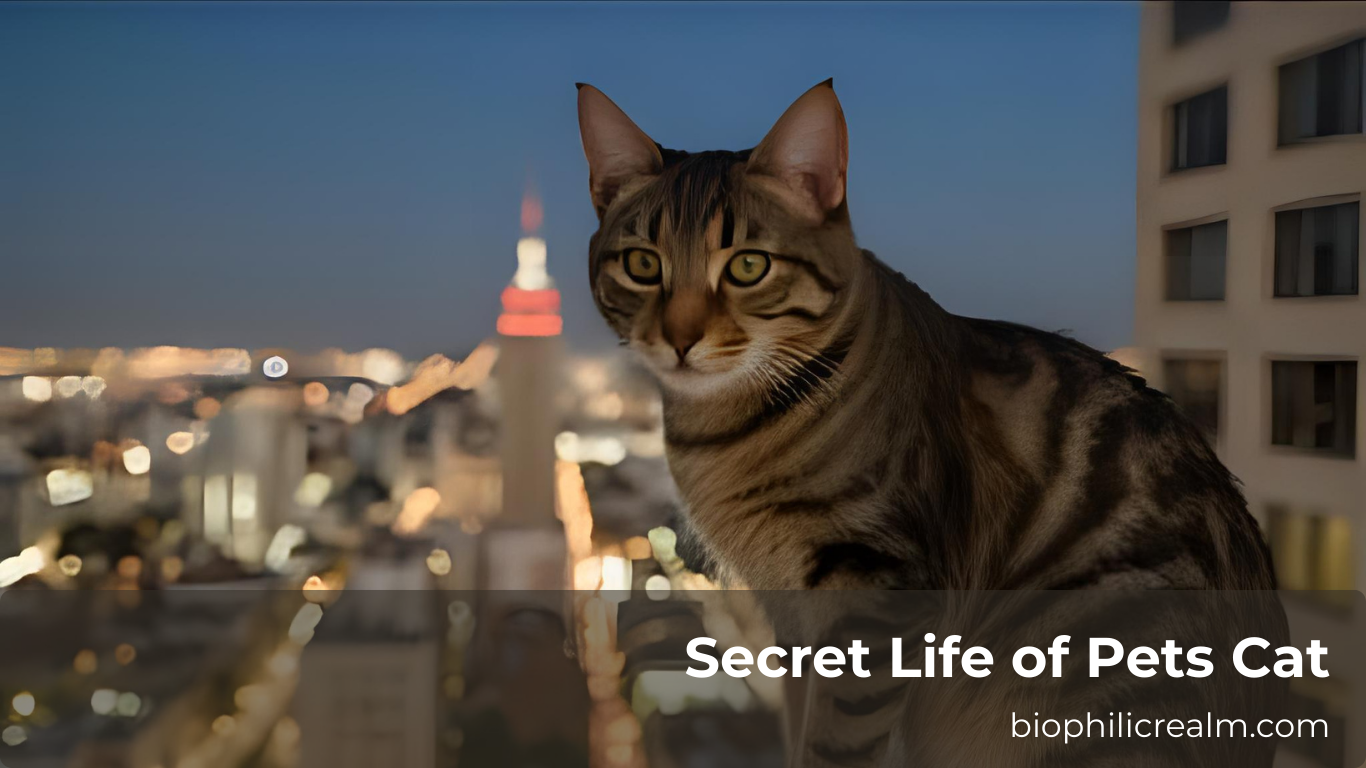
Bring Chloe home with toys and more
Chloe is so popular that there are tons of official and fan-favorite Chloe merch available around the world for fans. You can find Funko Pop figures, Ty plush, branded fabrics, apparel, and Chloe’s Toy Factory plushes in many sizes. The Secret Life of Pets Cat Toy lineup comes with a 9-inch Chloe plush from Toy Factory. You can also find McDonald’s promotional toys featuring Chloe. Are you interested? You can find these on eBay. Are you a party planner? Want the Chloe vibe at a pet-themed party? Get Secret Life of Pets 2 lunch napkins with Max, Chloe, and Snowball.
Why Chloe is the best
Chloe is so popular because she feels real to fans. She loves food, like raiding the fridge, zoning out in a glass bowl while Sweetpea pecks the glass, crashing into the party snack table, and panicking about a sticky toy mouse on her paws, just like how real cats and their owners act. Her clumsiness, like snack-table wipeouts and sticky toy mouse meltdowns, makes kids laugh at her and fall in love with her at the same time. Meanwhile, adults love her clever, dry humor.
The Secret Life of Pets movies themselves are big hits. The first movie got a 71% score on Rotten Tomatoes. It was praised for its great voice actors and bright New York City animation. Although Chloe has a more minor role in the sequel, she still shines in the way she balances humor with kindness. She helps Gidget act like a cat to save Max’s toy. Whether Chloe is helping Gidget act like a cat to save Max’s toy or joining a pet posse to chase a train, she is an unforgettable character in the movies because of her apathy and loyalty.
FAQ Section
What is the cat’s name in Secret Life of Pets?
The main cat character is Chloe.
What is the hairless cat on Secret Life of Pets?
The hairless cat is Ozone. He is a Sphynx cat who leads an alley gang and is allied with Snowball’s Flushed Pets.
What cat is Chloe from Secret Life of Pets?
Chloe is a gray tabby, sassy cat who loves food and is surprisingly loyal. She has a white belly and muzzle, pink ears and nose, and green eyes. She is very chubby and clumsy.
What are the street cats in Secret Life of Pets?
Ozone’s alley cat gang. They are not house-kept like Chloe. They clash with Max and Duke, and they are allied with the Flushed Pets, ones who operate out of the sewers.
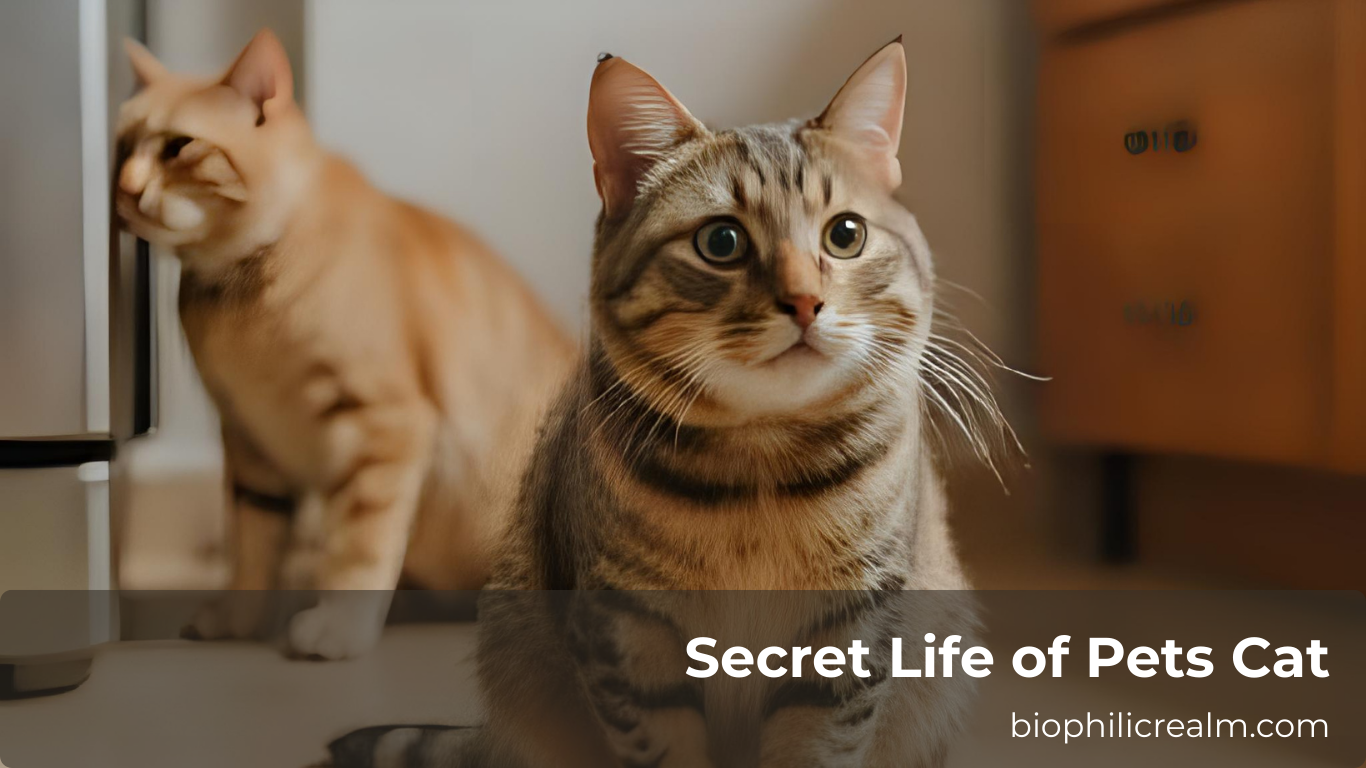
Conclusion
Chloe, the secret life of pets cat, brings sass, clumsiness, and kindness to The Secret Life of Pets and its sequel. Lake Bell’s awesome Chloe voice acting makes fans fall in love with her instantly. This gray tabby steals every scene with her food obsession and witty one-liners. Whether Chloe causes full chaos with wild catnip moments or goes on epic pet rescues, she is a truly cat movie star that fans absolutely love. To date, toys, party items, Funko Pop figures, and Ty plush keep Chloe’s spirit alive. She is proof that even the laziest cat can be a hero.
Animals
Buy Pet Carriers For Cats And Enjoy Stress-Free Travel
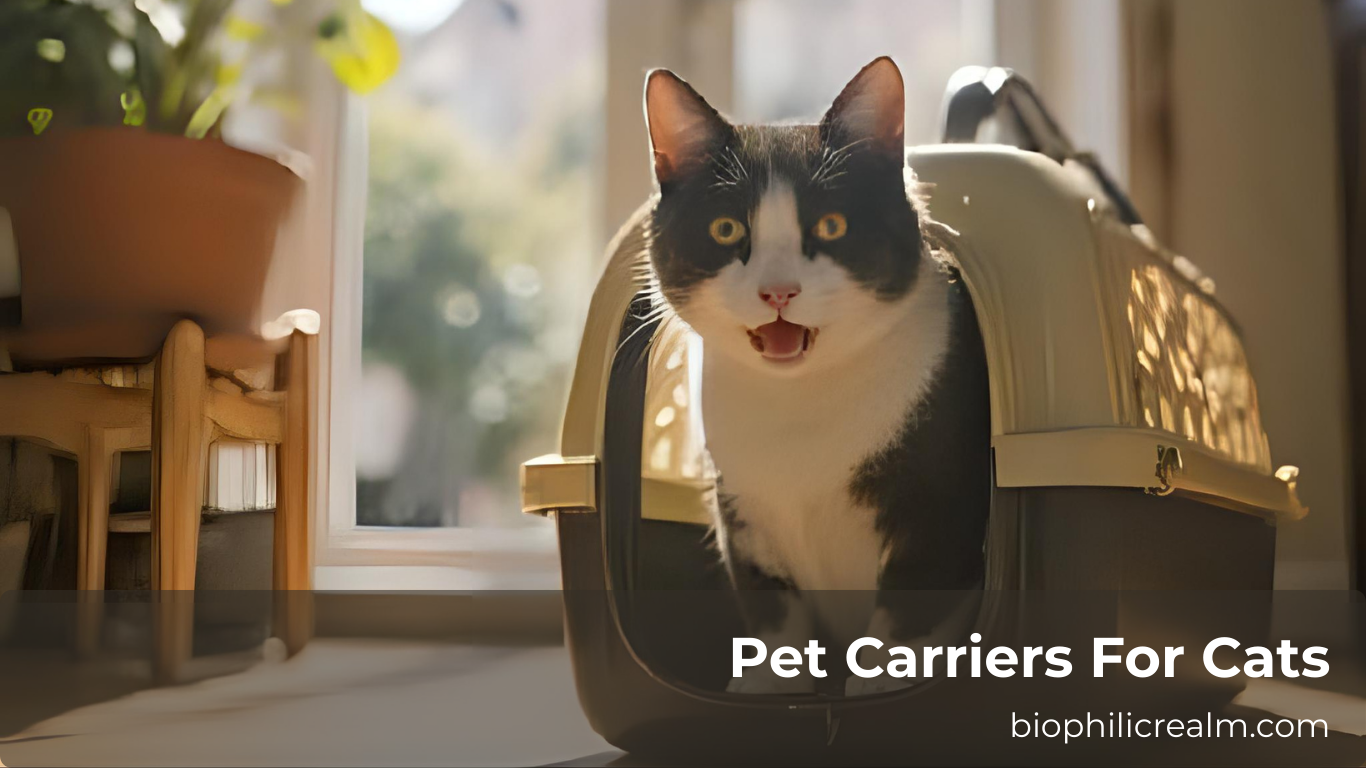
Are you planning a trip to the vet? Going on a road trip? Or maybe even flying somewhere with your cat? Anywhere you go, if you have cats, the right pet carriers for cats can completely change your journey into a smooth, comfortable one or a total disaster. You are not just carrying your cat in these carriers. It is a comfortable and safe home away from home for them. It is somewhere they can feel secure, even when everything around them is new and scary.

Manufacturers know how much cat owners love their cats. That is why they have introduced so many different pet carriers for cats on the market today. Whether you are looking for the best pet carriers for cats, airline approved pet carriers for cats, large pet carriers for cats, cheap pet carriers for cats, small pet carriers for cats, wheeled pet carriers for cats, or soft sided pet carriers for cats, you can find a perfect option for you and your cat.
Why good pet carriers for cats really matters
Let’s be honest, most cats like to curl up in their favorite sunny spot rather than go anywhere. But whenever you take your cats anywhere, it should not be a crappy carrier ever. Why? It just makes the whole experience worse for everyone. But, the best pet carriers for cats? These well-designed carriers keep your cats safe, comfortable, and calm. If you have indoor cats, you must definitely go with this. Because you know, indoor cats are not used to all the sights, sounds, and smells of the outside world.
The best pet carriers for cats can also help keep your cats from escaping during chaotic moments, like busy airports or vet waiting rooms. Trust us, chasing a scared cat through a busy vet clinic is no fun. You can even say bye to those car ride injuries during a sudden stop or accident if you pick the best pet carrier for your cats. The right carrier can also make your life easier with features like washable linings, multiple entry points, and comfortable bedding. And here’s the thing: you don’t have to spend a fortune to get a decent carrier. From cheap pet carriers for cats to premium models, you can definitely find a carrier that will work for your situation and budget.
Different types of cat carriers
Today, you can buy cat carriers in all shapes and sizes. Each type got its own advantages depending on what you need. But there are a few boxes to check. You need to figure out how often you will use it, your cat’s size, and what features matter most to you. Once you know that, you can easily pick the right carrier for your cat. Let’s look at some of the best pet carriers for cats types you should go for.
Hard-sided carriers
You may have probably seen these cat carriers made of classic plastic carriers with metal or wire doors at every vet clinic. Since they are sturdy, built like tanks, they offer excellent protection, especially if luggage shifts in a car. You can easily clean these up if your cat has an accident (let’s face it, it happens sometimes).
They are great for nervous cats because they feel solid and stable. But they can be a bit bulky for air travel due to their rigid shape. Most hard-sided carriers have doors on both the top and front. So, it makes it easy if you want to get a stubborn cat in or out. Since these carriers can handle cats up to 20-40 pounds, you can even carry bigger breeds like Maine Coons in these. In case you are looking for large pet carriers for cats.
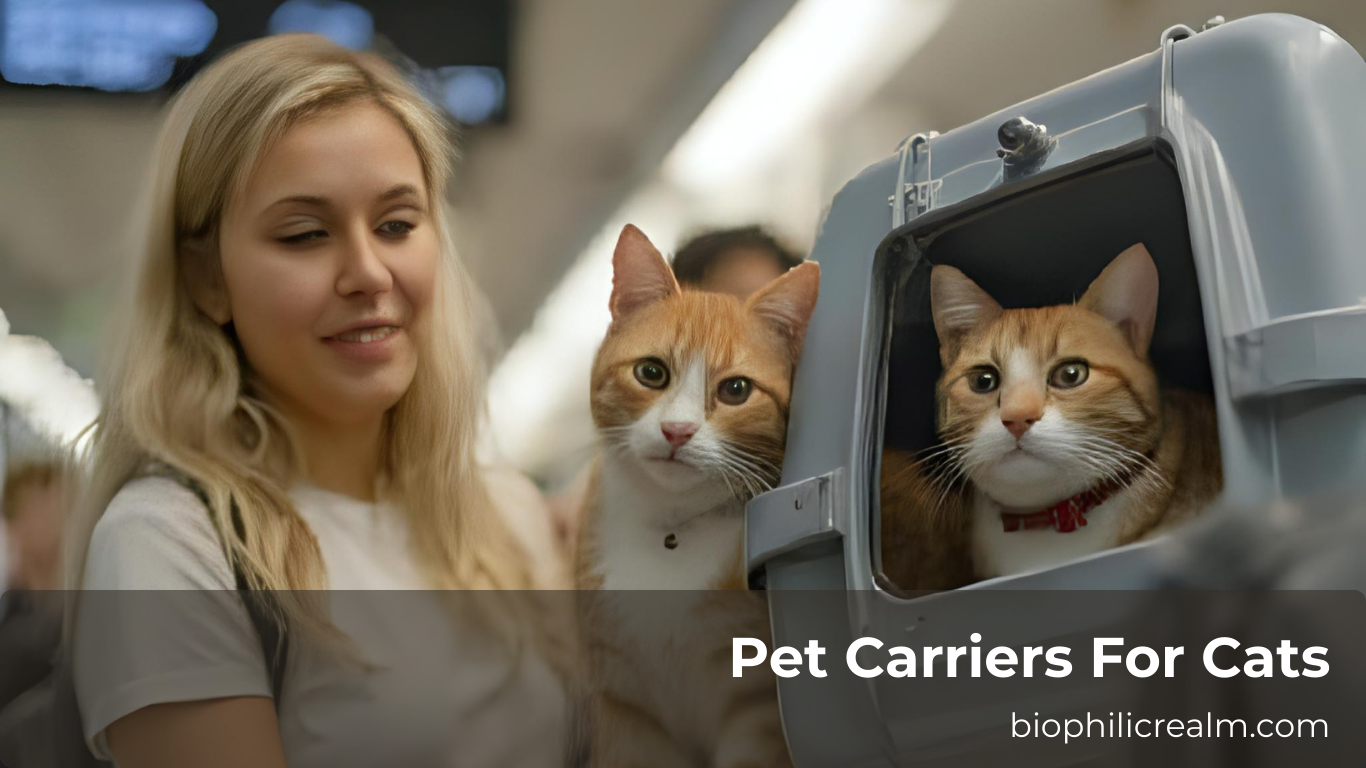
Soft sided pet carriers for cats
These lightweight, squishy carriers are made from nylon or polyester with mesh windows. Soft sided pet carriers for cats are perfect airline approved pet carriers for cats because you can actually fit these under airplane seats. That is not all. These are way easier to carry around than the hard plastic ones. Most carriers come with cozy fleece linings and storage pockets for treats or travel documents.
The mesh panels? They give your cat good airflow and let them see what is going on. These are great small pet carriers for cats (usually up to 13-18 pounds), but if you have a determined cat who’s going to escape or claw things, the mesh might not hold up well.
Backpack carriers
Do you want to go hands-free when you travel? Or do you live in a city and use public transport a lot? Then these stylish carriers are perfect for you. Although they look like regular backpacks, they have a secure compartment for your cat, complete with mesh windows and padding. Whether you’re walking, taking the stairs, or making your way through a packed crowd, you can do it all freely wearing backpack carriers. These carriers are the best small pet carriers for cats or kittens, since they support up to 16 pounds.
Wheeled pet carriers for cats
Are you dealing with airports? Do you have to walk long distances with your cat? Wheeled pet carriers for cats are your lifesaver. These carriers, like the Sherpa on Wheels, come with a telescoping handle and wheels. So, you can just roll them along instead of carrying all that weight. You can even convert some into totes or backpacks when you need more flexibility. They are ideal large pet carriers for cats that offer roomy interiors for cats up to 20–30 pounds. But you need to watch out for one thing when using a wheeled carrier. Some cats could get freaked out by the vibrations from the wheels, especially on bumpy surfaces. So, make sure to test this out at home first.
FAQ Section
Do cats prefer hard or soft carriers?
It really depends on your own cat. Hard carriers feel more stable and secure for cats. Nervous cats often like them because of that. And they are easier to clean. Soft carriers are lighter and better for flying.
What kind of pet carrier is best for cats?
Find one that gives your cat enough space to stand, shift positions, and rest peacefully. Make sure it is ventilated well. And it should be easy to secure in the car. Hard-sided carriers give your cats more protection, and soft-sided ones are easier to carry. Also, check if the carrier has a top-opening door. Thanks to this bonus feature, you can get your cat in and out much more easily.
Do cats prefer carriers or backpacks?
Regular carriers are usually better for most cats. Why? They offer a stable, den-like space. Backpacks are better for active owners and short trips, but since they move too much, your anxious cats can get more stressed.
Is it okay to leave a cat in a carrier?
Short periods are fine, like vet visits or flights, but it is not a good idea to leave your cat in one for long. Cats need space to move, eat, and use the litter box, so you should not use carriers for extended periods.
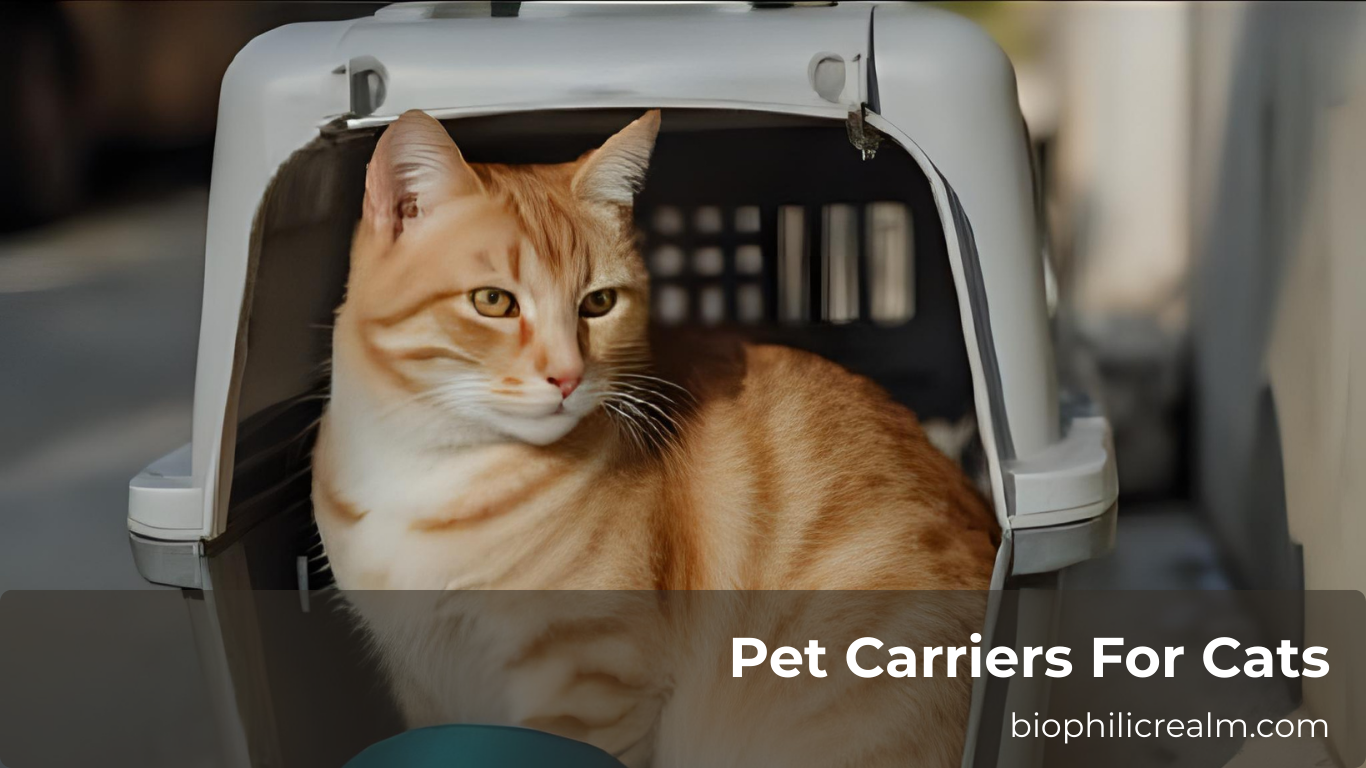
Conclusion
Pet carriers for cats are not just for getting your cat from point A to point B. They are a ticket for a stress-free adventure for you and your cat. The important thing is finding the right carrier that works for your situation, your cat’s size and personality, your travel needs, and your budget. Once you have got that figured out, add their favorite blanket, toy, and you are ready to hit the road.
Animals
Why Do Cats Like Being Pet? The Surprising Reasons Behind Their Purrs
Have you ever thought why your cat goes from purring like crazy one minute to giving you the stink eye the next? Cats are pretty picky about how and where they want to be touched. If you have been a cat owner for some time, you may have a lot of experience with this. But when you find that perfect spot, like under their chin or near their tail, you can make them very happy. So, let’s explore why do cats like being pet, your cat’s sweet spots, why it is so satisfying to pet a cat, and more in this article so you can become your cat’s favorite person.
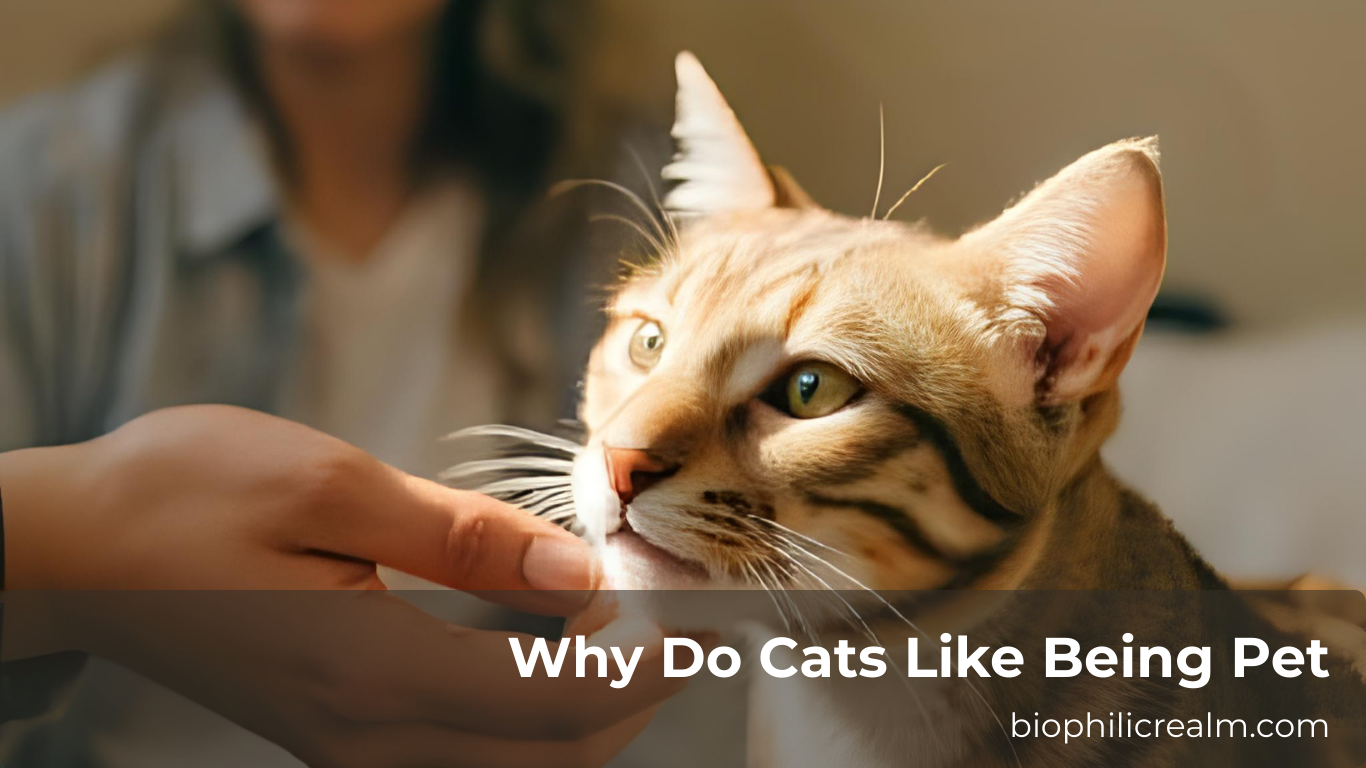
Why do cats like being pet and sometimes do not?
So, why do cats like being pet? It is not just because they are being cuddly. Cats have special scent glands tucked into their cheeks, chins, and base of their tail. When you pet these areas, you make them feel safe and comfortable. That is just like how your cat rubs against your legs or furniture. They mark their territory and say, ” You’re my person”. Petting also reminds cats of being babies. Just like how mama cats lick and groom their kittens, when you stroke your cat’s head or back, it reminds them of those snuggly kitten days.
This is why most cat owners ask, Why do cats like being stroked on the head. Those head rubs feel like their mom’s love. That is not all. Remember all that purring your cat does when you pet them? It is kind of like a mini meditation session, right? No wonder, why is it so satisfying to pet a cat? It is not just because they’re soft and cute; every time you pet your cat, it actually reduces stress for both of you.
Where do cats love to be pet most
You know this already, all the petting spots are not the same. And every cat has their favorites. Here are the top spots that most cats go crazy for.
Under the chin and cheeks
Have you ever noticed how your cats tilt their heads back and close their eyes when you scratch under their chin? This is one of their absolute favorite spots. Why do cats like being pet under the chin? Their chins and cheeks are packed with those scent glands we talked about earlier. When you rub there, you are helping them mark their territory with their scent. Your cats feel very comfortable when you do this. Cat’s chins are also a really safe spot. It is not as sensitive as their belly, so your cat will feel totally relaxed when you pet it. This goes for male cats, too. Where do male cats like to be petted? The chin’s a universal hit. But some boys might be pickier about how long you spend there.
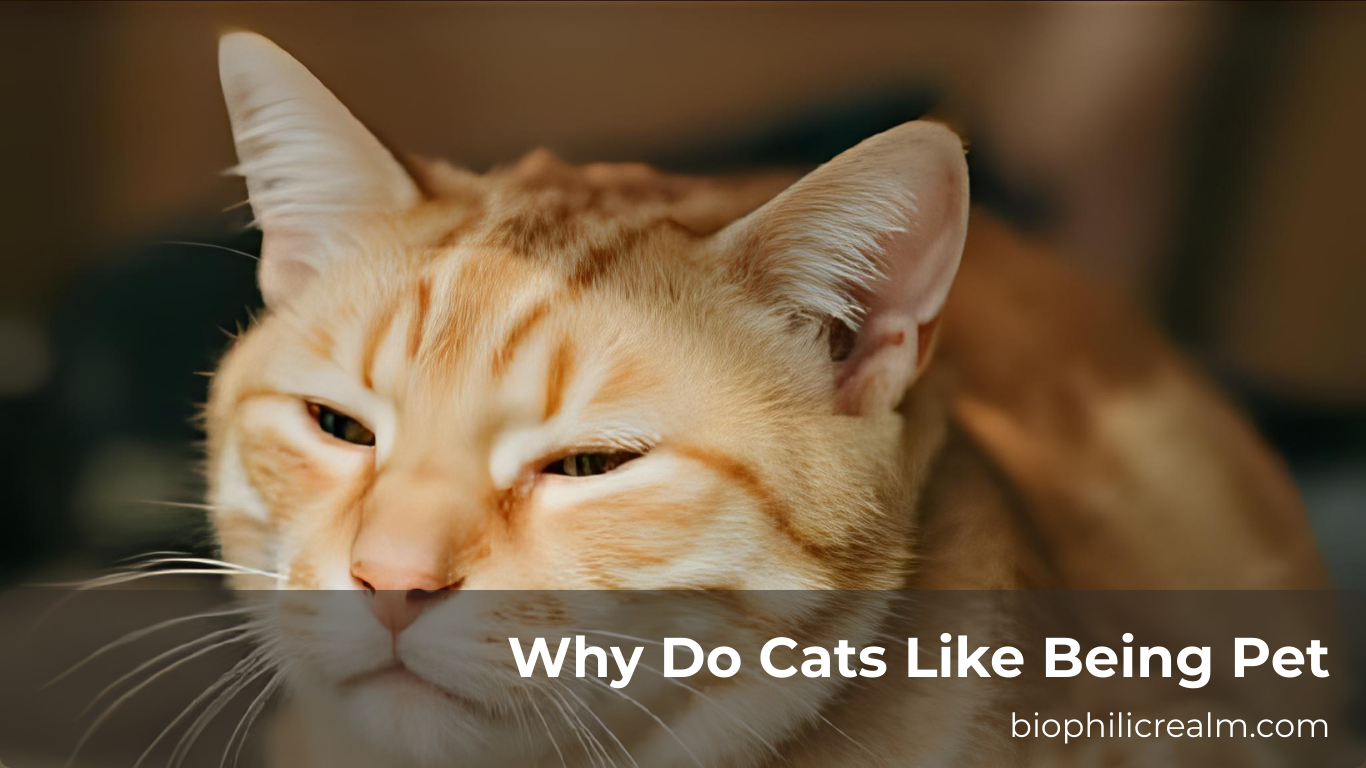
Near the tail
Do your cats suddenly stick their butts up in the air when you pet near their tail? Congratulations! You have found the jackpot. Why do cats like being petted near the tail? This area has scent glands and many nerve endings, so it is highly sensitive and pleasurable. It is like getting a really good scalp massage. And your cat feels this incredible feeling until it becomes too much for them. If you are asking, where do male cats like to be petted, male cats love this spot. But go easy, too much petting here can actually overstimulate them. Then they might swat or bite you. That elevator butt move your cats do? It is how they say, this feels great, but do not overdo it.
Head and neck pets
Why do cats like being stroked on the head? The top of their head and behind their ears are like safe zones because they are less vulnerable and packed with scent glands. When you stroke these spots, it is like how cats nuzzle and bunt each other to build trust and show affection, saying you’re part of my family. This works for pretty much all cats, even male cats. Although some cats like lighter touches, so they do not get annoyed. Do your cats close their eyes and start purring when you pet their head? Then you’ve definitely found their happy place.
Do cats actually understand our love?
Do cats know we like petting them? Cats may not understand emotions the same way we do, but they are actually smart at reading us. They learn that petting means love, especially when you use a soft voice or give them treats at the same time. Remember that time your cats rubbed against you or purred while you were petting them? That is their way of saying, “I’m enjoying this too”. It is how they bond with you, marking you with their scent to show you are part of their family.
Petting a sleeping cat
Do cats like to be pet while sleeping? Some cats absolutely love gentle strokes while they are napping, especially on their head or back. It is very soothing to them like a lullaby. Do you have calm, relaxed cats? They might even purr louder if you pet them softly during a nap. But others might jump or hiss if startled, especially if they are in a really deep sleep. Do you want to try? Start with very soft touches and stop right away if they stir.
What about kissing your cat?
Do cats like being kissed? Kissing is a human thing; cats do not always understand or appreciate it. When you get right up in their face, make them feel threatened, especially if they are not used to it. Some cats, especially those raised with lots of love, might enjoy a quick peck. Remember, cats always show affection in their own ways, like head bunts, slow blinks, or gentle nuzzles. Cats love them more than kisses.

Conclusion
So, why do cats like being pet? It is all about feeling safe and loved. Petting reminds them of being a kitten. Whether you are scratching their chin, rubbing their head, or doing those magical tail-base pets, you are giving your cats the best time of their life. When you pet these spots, they feel like grooming and helping them spread their scent glands around. But you need to understand that every cat is different.
While some cats enjoy sleepy pets, others like to be left alone when they are napping. Some tolerate kisses and would love you to just show affection in their own ways with head bunts, slow blinks, or gentle nuzzles. The best part? Petting does good for you, too. So, find your cat’s favorite spots, give a gentle touch, and enjoy those purrs. More purrs? Your cat is telling you that you are doing it right.
-

 Nature2 years ago
Nature2 years agoTurkey Tail Mushroom vs False Turkey Tail: Spotting the Difference
-
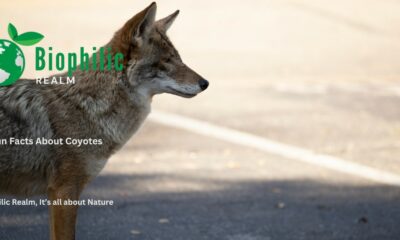
 Animals2 years ago
Animals2 years ago10 Fun Facts About Coyotes
-
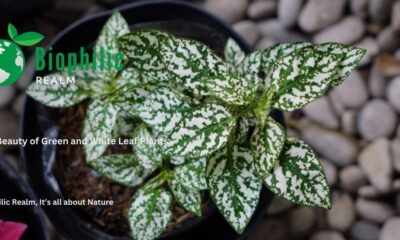
 Nature2 years ago
Nature2 years agoThe Beauty of Green and White Leaf Plants
-

 Animals2 years ago
Animals2 years agoKeeping Rats Away from Your Bird Feeder: Tips and Tricks
-

 Animals2 years ago
Animals2 years agoHow to Keep Rats Away from Bird Feeders: Simple Tips
-

 Biophilic Design11 months ago
Biophilic Design11 months agoBiophilic Design Trends 2025: 7 Stunning Ideas to Transform Your Home
-

 Nature2 years ago
Nature2 years agoOmothymus Spider: One of the Largest Tarantula Species in the World
-

 Biophilic Design11 months ago
Biophilic Design11 months agoTop 10 Biophilic Design Ideas to Bring Nature Into Your Home

